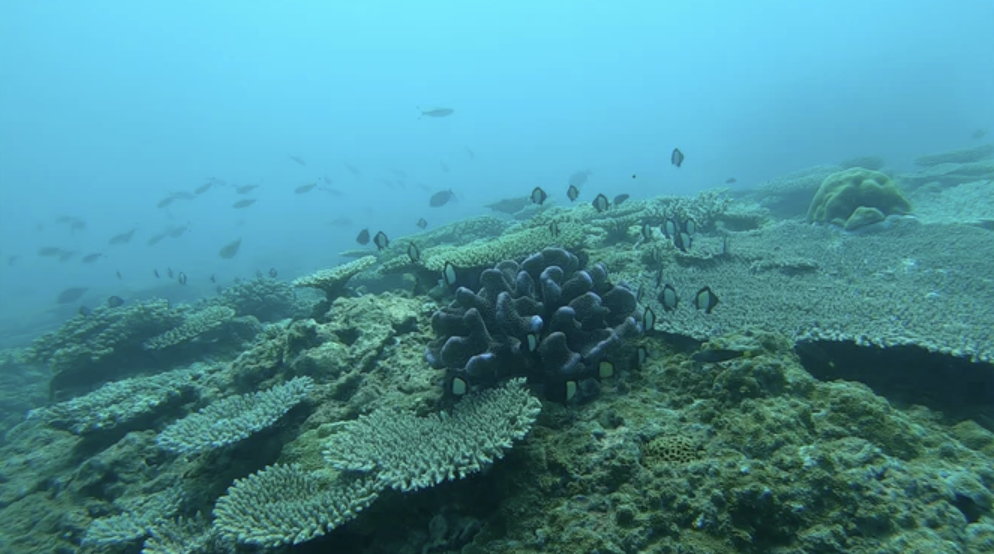Coral reefs, often described as the rainforests of the sea, are vital ecosystems teeming with life and color. These underwater paradises are crucial for marine biodiversity, providing habitat, food, and breeding grounds for countless marine species. At Top Shelf Aquatics, our commitment to responsible aquaculture practices reflects a broader effort to preserve these natural wonders. By specializing in the cultivation and sale of aquacultured corals, we aim to reduce the demand for wild-harvested corals, offering aquarium enthusiasts a sustainable alternative that supports reef conservation.
The threats facing coral reefs today, including climate change, pollution, and overfishing, highlight the importance of sustainable practices in the saltwater aquarium trade. As a leading provider of aquacultured corals, our role is integral to promoting conservation within the community, ensuring that enthusiasts can enjoy the beauty of coral reefs without contributing to the degradation of natural habitats.
This article explores the essential elements needed for coral reef survival, emphasizing the critical balance between human interaction and the natural world. Through responsible aquaculture, we can lessen the impact on wild coral populations and contribute to the ongoing health and longevity of coral reefs. The shift towards aquacultured corals is a step towards sustainable reef conservation, providing a responsible pathway for hobbyists to participate in the beauty and preservation of these ecosystems.
Optimal Water Conditions for Coral Health and Growth
The delicate balance within coral reef ecosystems is significantly influenced by the quality of the surrounding water. Temperature, salinity, and clarity are pivotal factors that determine the health and growth of coral reefs. In their natural habitats, corals have adapted to thrive within specific ranges of these conditions, making the maintenance of such conditions crucial for their survival.
Temperature: Coral species are highly sensitive to temperature, with most requiring water temperatures between 23°C and 29°C (73°F to 84°F). Deviations from this temperature range can lead to coral bleaching, a stress response where corals expel the symbiotic algae living in their tissues. This not only causes the corals to lose their vibrant colors but also significantly impacts their ability to sustain themselves.
Salinity: The salinity of seawater is another critical factor for coral health. Ideal salinity levels for corals are generally between 34 to 37 parts per thousand. Corals are sensitive to changes in salinity, which can affect their osmotic balance and overall health, leading to reduced growth rates or increased susceptibility to disease.
Clarity: Water clarity affects how much sunlight reaches the corals, which is essential for photosynthesis. Corals form a symbiotic relationship with zooxanthellae, tiny algae that live within their tissues and provide the corals with nutrients through photosynthesis. Turbid waters can significantly reduce light penetration, affecting the health and productivity of these symbiotic algae, and thereby impacting coral growth.
Maintaining these optimal water conditions is essential for the health of coral reefs. In natural settings, corals can be threatened by factors such as climate change, which can alter sea temperatures and salinity levels, and human activities that can reduce water clarity. Understanding and replicating these conditions in coral cultivation efforts are vital for the preservation of coral species and the ecosystems they support.
The significance of these water conditions underscores the need for careful monitoring and management of our marine environments. Protecting coral reefs and ensuring their survival requires a commitment to mitigating the impacts of climate change and reducing the adverse effects of human activity on these delicate ecosystems.
Sunlight Exposure: A Beacon for Coral Growth
Sunlight plays a critical role in the life of coral reefs, serving as the primary energy source for the zooxanthellae algae that live symbiotically within coral tissues. These microscopic algae perform photosynthesis, converting sunlight into energy in the form of sugars, which in turn support the coral's growth and contribute to the vibrant colors associated with healthy reefs. The symbiotic relationship between corals and zooxanthellae is a cornerstone of coral reef ecosystems, highlighting the importance of adequate sunlight for coral health.
The Science of Photosynthesis in Corals: Corals require specific light conditions to thrive, with most coral species favoring clear, shallow waters where sunlight is abundant. The intensity and spectrum of light in these environments are ideal for photosynthesis, which not only fuels the growth of the coral itself but also supports the diverse marine life that depends on reefs for habitat and food.
Depth and Light Penetration: The depth of water significantly affects the amount of sunlight that reaches coral polyps. In deeper waters, less light penetrates, limiting the photosynthetic efficiency of zooxanthellae. This is why coral reefs are predominantly found in shallow waters, where sunlight exposure is optimal. However, too much direct sunlight can also be harmful, leading to bleaching events during periods of extreme heat and light intensity.
Adapting to Light Conditions: Coral reefs have adapted to a wide range of light conditions. Some corals can thrive in lower light, utilizing specialized pigments to capture available light more efficiently. This adaptability is crucial for the survival of corals across different depths and environments.
The Role of Human Activities: Human activities that increase water turbidity can significantly reduce light penetration, impacting coral health. Sedimentation, pollution, and other forms of environmental degradation can cloud water, hindering the photosynthetic activity of zooxanthellae and, by extension, the growth and resilience of coral reefs.
Protecting coral reefs involves not only preserving the water quality but also ensuring that the conditions for optimal sunlight exposure are maintained. By understanding the delicate balance required for coral photosynthesis, conservation efforts can be more effectively targeted to support these vibrant ecosystems. Actions such as reducing pollution, managing coastal development, and protecting water clarity are vitalsteps in safeguarding the sunlight that fuels coral reef life.
Balanced Ecosystems: The Keystone of Coral Reef Health
Coral reefs are among the most complex and diverse ecosystems on the planet, supporting an incredible variety of marine life. The health and stability of coral reefs depend on a finely balanced ecosystem, where each organism plays a critical role in maintaining the overall health of the reef. This balance ensures the efficient recycling of nutrients, provides food for a wide range of marine species, and helps protect against the proliferation of algae and other potential reef competitors.
Symbiotic Relationships: At the heart of coral reef ecosystems are symbiotic relationships, such as the one between corals and the zooxanthellae algae, which live inside their tissues. These algae provide the corals with nutrients through photosynthesis, while the corals offer the algae a protected environment and the compounds they need to photosynthesize. This relationship is fundamental to the reef's survival, illustrating the interconnectedness of reef organisms.
Biodiversity as a Buffer: The incredible biodiversity found within coral reefs serves as a buffer against environmental changes and disturbances. Each species has a specific role, from grazers that control algae growth to predators that regulate the populations of other species. This diversity ensures that the ecosystem can recover more quickly from stressors, making it more resilient to changes such as those induced by climate change or human activities.
The Impact of Overfishing: Overfishing poses a significant threat to coral reefs by disrupting these delicate ecological balances. Removing key species, such as herbivorous fish that control algae populations, can lead to unchecked algae growth, which competes with corals for space and light, ultimately degrading the reef structure.
Protection and Restoration Efforts: Efforts to protect and restore balanced ecosystems within coral reefs focus on several strategies, including establishing marine protected areas (MPAs) to conserve biodiversity, regulating fishing practices to prevent overfishing, and rehabilitating damaged reefs through coral planting and other restoration activities. These efforts aim to preserve the intricate web of life that sustains coral reefs and ensures their survival for future generations.
The health of coral reefs is indicative of the health of our oceans. By understanding the importance of balanced ecosystems and taking action to protect these vital habitats, we can help ensure the longevity and resilience of coral reefs around the world. Conservation efforts that maintain the balance of these underwater ecosystems are essential not only for the reefs themselves but also for the millions of people who rely on them for food, income, and protection against coastal erosion.
A Collective Endeavor for Coral Reef Conservation
As we have explored throughout this article, coral reefs are fundamental to marine biodiversity, offering shelter, food, and breeding grounds for an astonishing variety of marine life. The survival of these vibrant ecosystems hinges on maintaining optimal water conditions, ensuring adequate sunlight exposure, preserving balanced ecosystems, and mitigating the myriad threats they face from climate change, pollution, overfishing, and harmful human activities.
The role of aquaculture, particularly practices like those undertaken by Top Shelf Aquatics, is invaluable in this context. By responsibly cultivating and selling aquacultured corals, efforts are made to lessen the demand for wild-harvested corals, thus providing a sustainable alternative that contributes to the conservation of coral reefs. Such initiatives not only help to reduce the pressures on natural reefs but also educate and engage the public and aquarium enthusiasts in conservation efforts.
The preservation of coral reefs is not the responsibility of a single entity or sector but a collective endeavor that requires the collaboration of governments, non-governmental organizations, the scientific community, industry stakeholders, and the global community. Through concerted efforts, such as establishing marine protected areas, enforcing sustainable fishing practices, reducing pollution, and supporting coral restoration projects, we can ensure the health and longevity of coral reefs for future generations.

